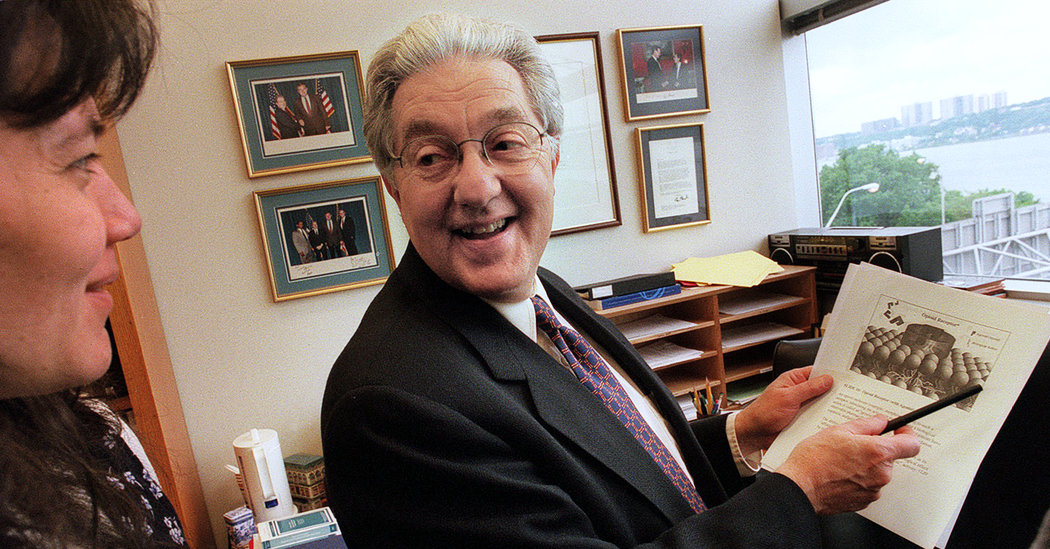
Herbert David Kleber was born on June 19, 1934, in Pittsburgh to Dorothea (Schulman) and Max Kleber, both of whom were Eastern European Jewish immigrants. His father trained as a pharmacist before going into the family luggage business, “Kleber Trunk and Bag,” which manufactured soldiers’ footlockers during World War II. His mother raised bonds for the new state of Israel.
He attended Dartmouth College and Jefferson Medical College (now the Sidney Kimmel Medical College) in Philadelphia. In 1956, he married his high school sweetheart, Joan Fox, and they raised three children. The marriage ended in divorce.
In addition to Ms. Lawver, whom he married in 2004, and his son, Marc, Dr. Kleber is survived by two daughters, Elizabeth Kleber and Pamela Shad; six grandchildren; and one great-granddaughter.
His experience at Lexington had initially discouraged him about the prospect of treating addiction. While there, he learned that 90 percent of people relapse within three months of leaving treatment.
At that point, he said in 2015 in an oral history for Columbia, “the last thing in the world I wanted to do was to treat addiction.”
But, he said, “once you had been at Lexington, you were a marked man.” That is, everyone — “addicts who wanted help, doctors who wanted someone to refer to, parents worried about their children” — sought him out.
“Finally, after a year or so of that,” he recalled, “I said, ‘Well, maybe it’s fate.’ ”
Years later, during his Senate confirmation hearing to be deputy drug czar, he was asked how he kept up his optimism after so many decades of working with drug addicts.
Dr. Kleber responded with a paraphrase from the Talmud:
“The day is short. The task is difficult. It is not our duty to finish it, but we are forbidden not to try.”

